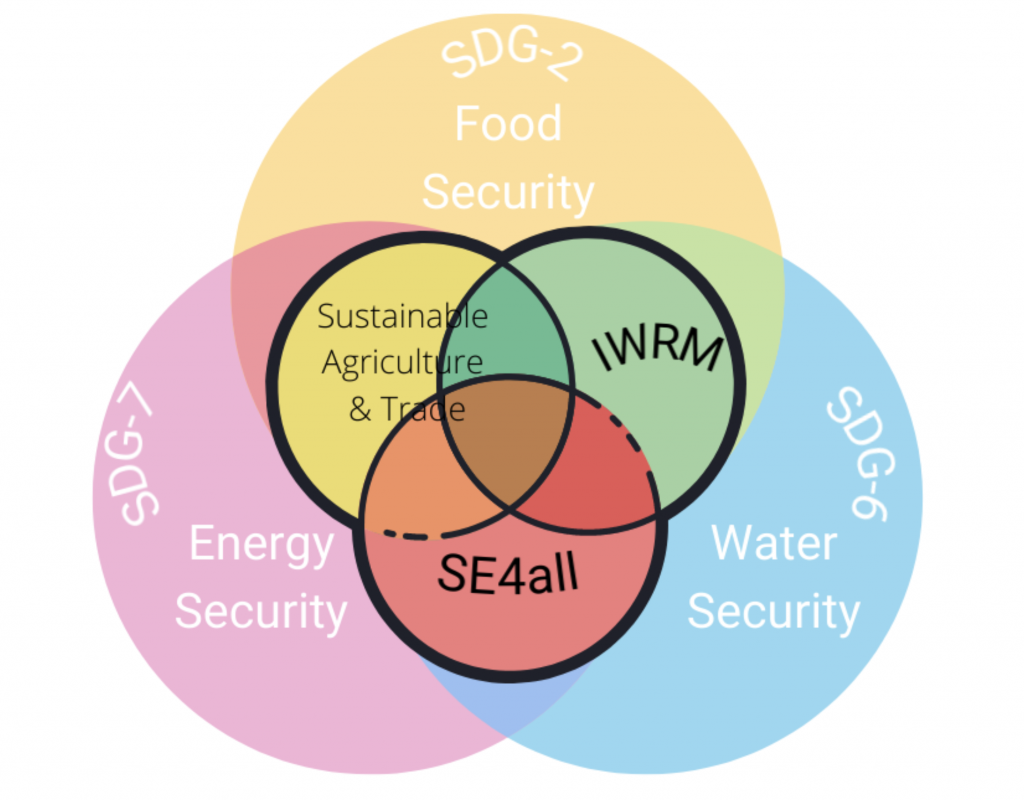EDITORIAL TEAM: Jen Ventrella, E4C Expert Fellow; Mariela Machado, E4C Program Manager; Grace Burleson, E4C Research Manager
PARTNER COLLABORATORS: Dr. Hala Ghattas, American University of Beirut; Dr. Imad Elhajj, American University of Beirut
Click here to view the full report.
The Middle East and North Africa (MENA) region is currently facing multiple challenges related to the Water, Energy and Food sectors, such as water scarcity, drought, population growth, urbanization and political instability. Food-Water and Water-Energy Security are core to the Sustainable Development Goals’ (SDGs) targets and indicators in the region. The MENA region faces significant challenges in reaching the SDGs, particularly SDG 2 (Zero Hunger), SDG 6 (Clean Water and Sanitation), and SDG 7 (Affordable and Clean Energy), although unique challenges vary between countries. The challenges in these sectors cause negative health impacts including malnutrition, water related diseases, and pollution due to use of fossil fuel energies.
However, social innovation and entrepreneurship has been growing steadily in the region, with initiatives aiming to support achievement of the SDGs, such as reducing energy and water usage in agriculture, improving drinking water security, food security, and more. In collaboration with the American University of Beirut, Engineering for Change aimed to analyse the ecosystem of innovation within the water-energy-food nexus by identifying enabling factors and barriers that innovators encounter in the region.
To investigate the social innovation sector in the MENA region, we chose to combine findings from desk research and expert insights from semi-structured interviews with active social innovators. Participants for interviews were selected for the study based on the criteria that their innovation had to address issues related to at least two of the sectors within the Water Energy Food nexus in the MENA region. The interview participants included innovators representing 27 startups from 9 countries across the MENA Region.
Using the Business Model Canvas, the interviewed companies’ business models, organization characteristics, value propositions, and motivations are classified. Furthermore, company challenges, obstacles, and enablers for success are described in an effort to identify needs and opportunities to improve the enabling environment for entrepreneurship in the region. Importantly, sustainability and health impacts for the innovations are highlighted.
The final aim of the report is to provide recommendations on how to approach innovation in the water energy food nexus in the MENA region. For example, R&D should be promoted by policy-makers and universities to support innovation, bureaucracy and administrative burdens should be made leaner and friendlier towards innovators, improved access to finances and markets should be made possible for entrepreneurs, social innovation should be encouraged and innovators properly recognized in their home countries, proper education and awareness about sustainability issues should be promoted and spread in the region, and policies supporting entrepreneurship should be developed and further implemented.
Click here to view the full report.

